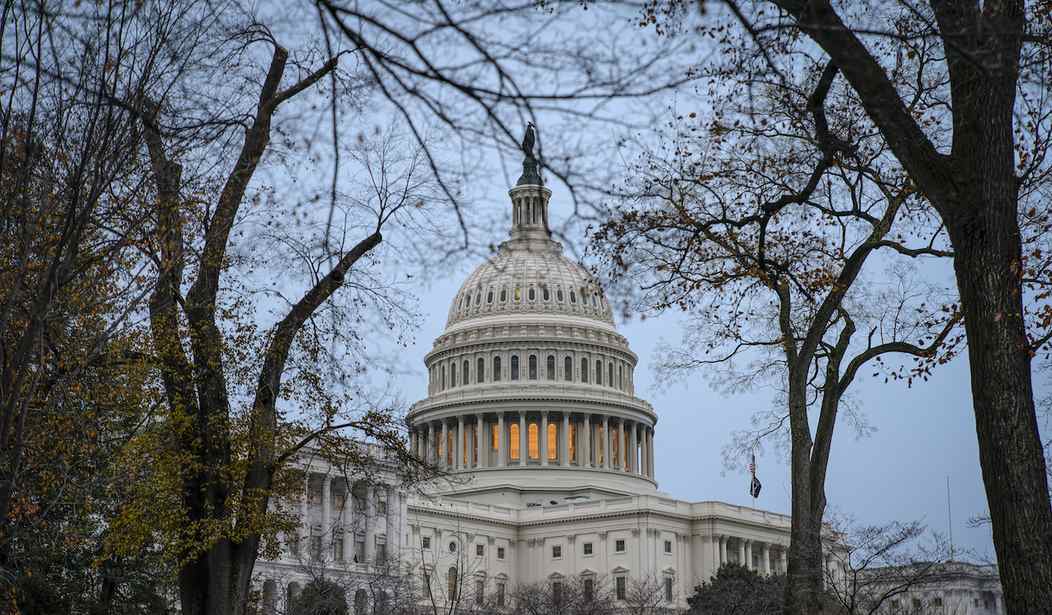Only in depths of the D.C. swamp could politicians find a way to use must-pass defense legislation to gift an American company a lump of coal while rewarding a Chinese company with the latest new toy. ‘Tis the season for Congressional hypocrisy and squandering taxpayer dollars.
Even by typical swamp standards, Congress obscenely steered the National Defense Authorization Act (NDAA) to take the unprecedented step of including provisions in the bill that target an American company at the behest of defense contractors. These sections of the NDAA are so galling they prompted public outcry from Rep. Cathy McMorris Rodgers (R-WA), the incoming ranking member of E & C, who issued a statement asking “why single out an American company focused on boosting our country’s 5G leadership but leave out protections against Chinese drone manufacturers threatening our national security?”
During the legislative process, Congress deleted a provision that punished a Chinese company yet inserted language to punish an American company engaged in expanding 5G in the United States. In the original draft of the NDAA, there was a provision banning federal agencies or federal funding of the purchase of Chinese drone technology. These provisions are inconsistent and favor Chinese companies over American ones.
The Senate Armed Services Committee, under the leadership of Chairman Jim Inhofe (R-OK), included the Huawei-like provisions targeting an American company while simultaneously lifting a ban on a Chinese drone company. Ponder the meaning of that for a moment. The actions of this same Chinese company have raised numerous national security concerns for the United States, with the Department of the Interior even going so far as to ground its Chinese-manufactured drones over espionage fears and the Department of Commerce recently adding them to a trade blacklist. Given these ongoing and unresolved concerns, the provisions within the NDAA do not make sense.
Recommended
Rep. McMorris Rodgers is keenly aware of what her friends at the Armed Services Committee have done and said "enough is enough." While the proponents of the language argued it is necessary for “national security,” the provision in the bill had nothing to do with “keeping us safe,” it merely “keeps a U.S. company out” of a market dominated by defense contractors, major donors of those particular Members of Congress and staunch advocates for the inclusion of the language, who are afraid of competition with new market entrants. In short, the language is not protecting Americans against a national security threat – it’s protecting defense contractors against a competitive threat.
The “safety” excuse further falls apart in light of the fact that the Federal Communications Commission (FCC), the independent and expert agency authorized by Congress to manage commercial spectrum and resolve legitimate and technical concerns, unanimously concluded no national threat existed as a result of the American company. And yet, still despite the scientific and engineering realities, at the behest of the military-industrial complex, the Pentagon attempted to bully the FCC to change its decision and went to friendly Members of Congress to exert pressure on the Commission -- a blatant attempt to undermine the FCC’s decision and authority.
The Pentagon should focus on their designated arena and worry about defense issues, not intercede on behalf of its supplies and cause intragovernmental friction with the FCC. Given the recent reports of successful attempts by foreign governments to hack our nation's national security headquarters, it appears the Pentagon should concentrate on adequately protecting state secrets and information before attempting to usurp the responsibilities of other non-defense agencies.
We can only hope the next Congress scrutinizes these provisions more carefully in the next iteration of the NDAA in 2021 and rights this wrong. Hopefully, the Christmas season of 2021 will have Santa adding U.S. based technology companies to the nice list and placing unscrupulous Chinese companies on the naughty one.
Peter Mihalick is former Legislative Director and Counsel to former Reps. Barbara Comstock (R-VA) and Rodney Blum (R-IA).

























Join the conversation as a VIP Member